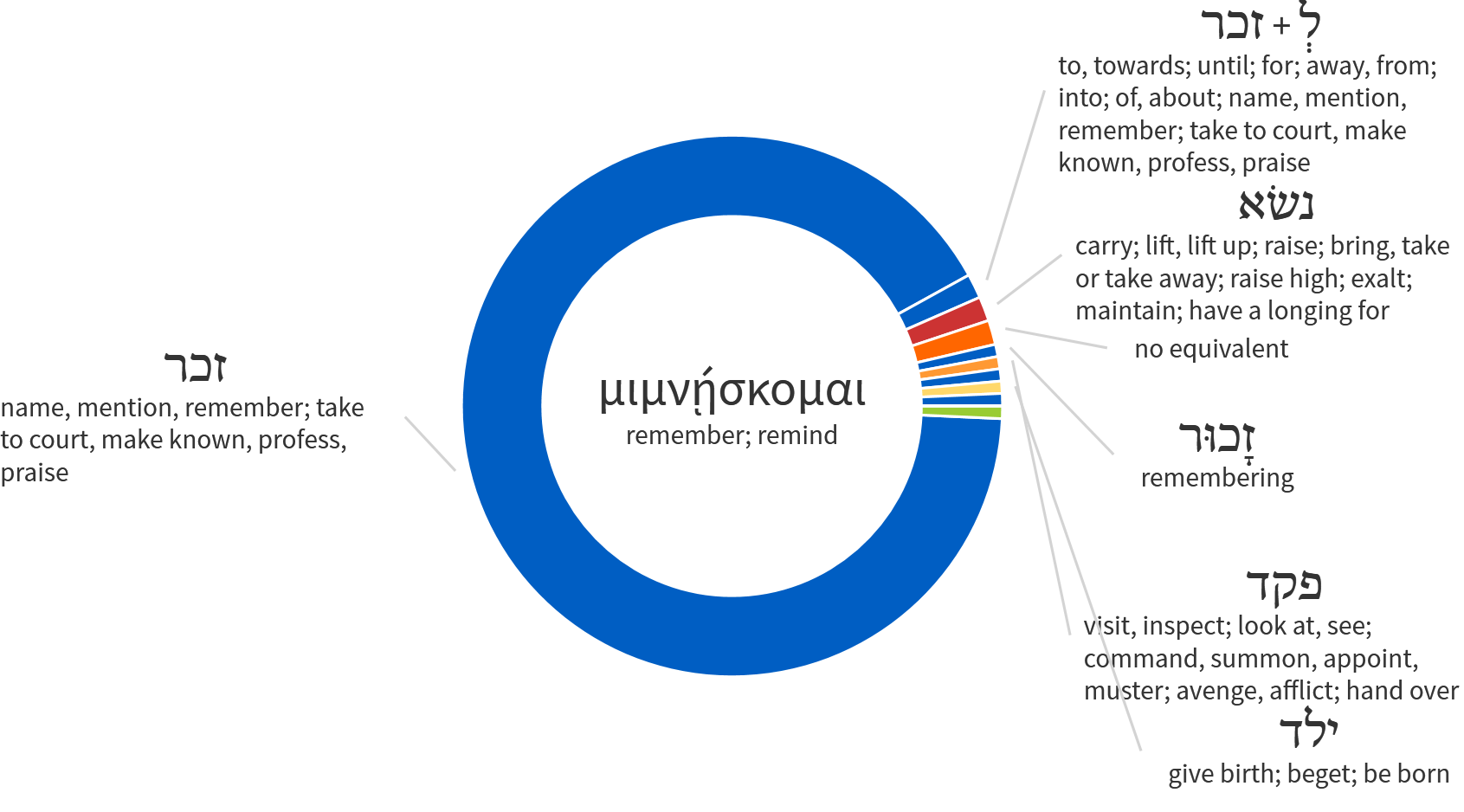In this verse "those in prison" probably refers to Christians imprisoned for their faith. Paul's needs while in prison in 2 Tim. is an example of their needs. Also there is this:
For I was hungry and you gave me food, I was thirsty and you gave me drink, I was a stranger and you welcomed me, 36 I was naked and you clothed me, I was sick and you visited me, I was in prison and you came to me.’
(Matt. 25:35–36, ESV)
This is the scriptural support for Austin's statement, "Remember rarely means to simply remember, but remember so as to act. These actions can be prayers. They can also be communications, visitations, collections, relief efforts, etc."
Remember those who are in prison, as though in prison with them, and those who are mistreated, since you also are in the body.
(Heb. 13:3, ESV)
Normally I would put the English senses of μιμνῄσκομαι. However, that only had remember. Significant is the minor uses for this word in the Septuagint (LXX). It is used for the Hebrew word to lift up as in prayer and the Hebrew word to visit as in prison.

This passage has an interesting use of the different words:
3 I thank God whom I serve, as did my ancestors, with a clear conscience, as I remember [ἔχω τὴν περὶ σοῦ μνείαν] you constantly in my prayers night and day. 4 As I remember [μεμνημένος] your tears, I long to see you, that I may be filled with joy. 5 I am reminded [ὑπόμνησιν ⸀λαβὼν] of your sincere faith, a faith that dwelt first in your grandmother Lois and your mother Eunice and now, I am sure, dwells in you as well. 6 For this reason I remind [ἀναμιμνῄσκω] you to fan into flame the gift of God, which is in you through the laying on of my hands, 7 for God gave us a spirit not of fear but of power and love and self-control. 8 Therefore do not be ashamed of the testimony about our Lord, nor of me his prisoner, but share in suffering for the gospel by the power of God, 9 who saved us and called us to a holy calling, not because of our works but because of his own purpose and grace, which he gave us in Christ Jesus before the ages began, ...
(2 Ti 1:3–9, ESV)
The structure of Psalm 8:4 quoted here equates ἐπισκέπτῃ (you care for) with μιμνῄσκῃ.
τί ἐστιν ἄνθρωπος ὅτι μιμνῄσκῃ αὐτοῦ,*
ἢ υἱὸς ἀνθρώπου ὅτι ἐπισκέπτῃ αὐτόν;
(Heb. 2:6, ESV)
While not directly related, this gives some insight.
Do your best to come to me soon. 10 For Demas, in love with this present world, has deserted me and gone to Thessalonica. Crescens has gone to Galatia, Titus to Dalmatia. 11 Luke alone is with me. Get Mark and bring him with you, for he is very useful to me for ministry. 12 Tychicus I have sent to Ephesus. 13 When you come, bring the cloak that I left with Carpus at Troas, also the books, and above all the parchments. 14 Alexander the coppersmith did me great harm; the Lord will repay him according to his deeds. 15 Beware of him yourself, for he strongly opposed our message. 16 At my first defense no one came to stand by me, but all deserted me. May it not be charged against them! 17 But the Lord stood by me and strengthened me, so that through me the message might be fully proclaimed and all the Gentiles might hear it. So I was rescued from the lion’s mouth. 18 The Lord will rescue me from every evil deed and bring me safely into his heavenly kingdom. To him be the glory forever and ever. Amen.
(2 Tim. 4:9–18, ESV)
